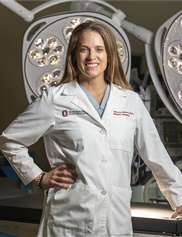Before & AfterPhotos
 View Photo Gallery
View Photo Gallery
Skin rejuvenation and resurfacing can be achieved in several ways, ranging from laser and light treatments to chemical peels and injectables.
Sun, skin disorders, aging and even heredity can all contribute to skin irregularities on the face and elsewhere on the body. These include textural irregularities like wrinkles and acne scars, pigmentation changes like freckles, sunspots or visible blood vessels. In addition, skin may lose tone, feel less firm and lose the healthy glow that is evident in younger skin.
Different treatment modalities are available to treat the different aspects of skin damage.
Laser resurfacing, mechanical resurfacing, chemical peels and injectable products can improve the appearance of fine lines and wrinkles of the entire face or those that develop in specific regions of the face, such as the upper lip and around the eyes. These treatments can also be used to address pigmentation disorders, such as sun and age spots, and they can be used to improve the appearance of acne scars or other skin conditions.
The specific type of treatment that will best address your concerns are determined after a consultation with your board-certified plastic surgeon. Most skin treatments require a series of treatments and a multi-modality approach to achieving excellent results. Most importantly, the patient must be committed to protecting his or her skin going forward so that the results achieved will be longer lasting.
The following are some examples of skin rejuvenation and resurfacing treatment methods:
Conditions that can be treated with skin rejuvenation and resurfacing. Every patient is unique and will exhibit different combinations of genetic and environmental signs of aging that impact their skin. There are multiple ways to treat many of these issues, and those treatment methods should be planned and discussed with your board-certified plastic surgeon based on your specific situation and desires.
The following are some of the conditions that different skin rejuvenation approaches can address:













